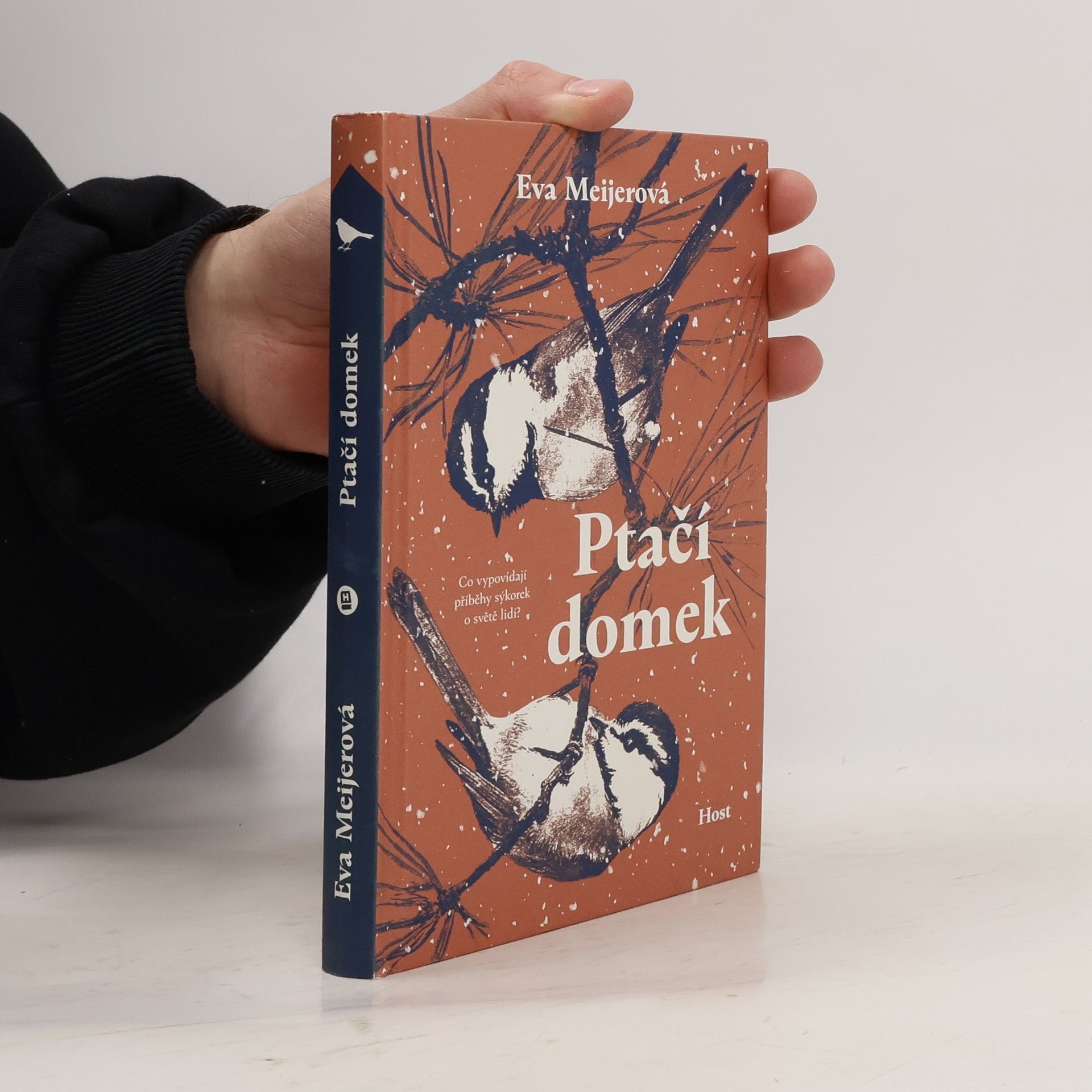Zee nu is als de zee – grillig, woest en onvoorspelbaar, dreigend en uiteindelijk troostend. Het duurde even voor de mensen begrepen wat er aan de hand was. De zee komt de ene dag verder het strand op dan de andere. Een enkele strandwandelaar voelde wel dat er iets niet in de haak was. Maar wat?De zee wint elke dag een kilometer terrein. Polders aan de kust lopen vol en de boulevard van Scheveningen staat blank. De minister-president geeft een persconferentie en Defensie stuurt soldaten naar de dijken. Op Twitter roepen complotdenkers Actie!, de Action adverteert: Eenmalig! 4 reddingsvesten voor de prijs van 3! Wetenschappers komen van heinde en verre om dit zeldzame fenomeen te onderzoeken. Duitsland stelt sportzalen voor de geëvacueerde buren ter beschikking. De koning vertrekt naar zijn vakantiehuis in Mozambique. Maar waar moeten de herten heen? En hoe zal het de blijvers vergaan die hun kampement opslaan op de daken van kantoorgebouwen in de Randstad?Als de mensen geëvacueerd zijn en de laatste meeuwen hun heil elders zoeken, volgen wij activiste Arie, scholier Wilg en oceanograaf Paula van der Steen op hun tocht over de nieuwe zee, en ontdekken hoe het water hun kijk op de wereld fundamenteel verandert.Zee nu is als de zee – grillig, woest en onvoorspelbaar, dreigend en uiteindelijk troostend. Het is een roman over het grootste gevaar van dit moment, over Nederland, over de natuur die ons bedreigt en koestert en over de mens, die gedwongen wordt zichzelf opnieuw uit te vinden.,
Eva Meijer Boeken
Eva Meijer is een kunstenaar, schrijver en filosoof wiens werk diverse artistieke disciplines omvat. Haar creatieve output bevraagt vaak thema's als communicatie en de stemmen van gemarginaliseerden, waarbij ze rigoureus filosofisch onderzoek combineert met diverse artistieke uitingen. Haar schrijven daagt conventionele perspectieven uit en zet lezers aan tot heroverweging van hun begrip van de wereld en haar bewoners.







Een boek dat het beste uit de filosofie, de literatuur en het recht bij elkaar brengt om de Noordzee een eigen stem te geven. In het antropoceen zijn mensen, planten, dieren en dingen onlosmakelijk met elkaar verbonden. Dit vraagt om nieuwe vormen van vertegenwoordiging in politiek, recht, ethiek en taal. In opdracht van de Ambassade van de Noordzee onderzoeken de auteurs vanuit het idee van filosoof Bruno Latour om dieren en dingen een stem te geven, hoe de Noordzee over zichzelf zou kunnen beschikken. Evanne Nowak beschrijft dat we lijden aan ecological grief. We treuren om de teloorgang van de Noordzee. Hoe komen we uit onze ecologische rouw? We kunnen luisteren naar wat de dieren – de vissen, vogels, krabben van de Noordzee – ons te zeggen hebben, stelt filosoof Eva Meijer. We kunnen het gesprek met dieren aangaan en hun een stem geven. Hoe dat kan werken laat jurist Laura Burgers zien. Voor de dieren zou het handig zijn als de Noordzee een eigen rechtspersoon zou worden. Laura Burgers is jurist, auteur van jeugdromans, en is als expert werkzaam in het VN-programma Rights of Nature. Eva Meijer is filosoof, kunstenaar, muzikant en romanschrijver. Haar werk is in vele talen vertaald. Ze heeft een column in Trouw. Evanne Nowak werkt als programmamaker, curator en gespreksleider. Ze studeerde af als humanistisch geestelijk verzorger en organiseert workshops en gespreksgroepen rondom ecological grief.
The Limits of My Language
- 144bladzijden
- 6 uur lezen
A beautiful and moving study of depression, in which the author draws on her personal experience of mental illness as well as her deep knowledge of philosophy, to show the issue in a new light
Bird cottage
- 256bladzijden
- 9 uur lezen
A novel based on the true story of a remarkable woman, her lifelong relationship with birds and the joy she drew from it Len Howard was forty years old when she decided to leave her London life and loves behind, retire to the English countryside and devote the rest of her days to her one true passion: birds. Moving to a small cottage in Sussex, she wrote two bestselling books, astonishing the world with her observations on the tits, robins, sparrows and other birds that lived nearby, flew freely in and out of her windows, and would even perch on her shoulder as she typed. This moving novel imagines the story of this remarkable woman's decision to defy society's expectations, and the joy she drew from her extraordinary relationship with the natural world.
Animal Languages
- 288bladzijden
- 11 uur lezen
A fascinating and philosophical exploration of animal intelligence and the way animals communicate with each other, and us.
Žena žijící sama v malém domku na anglickém venkově se může zdát osamělá, ve skutečnosti se však nachází v té nejlepší společnosti. Len Howardová strávila polovinu života v domku na anglickém venkově. Napsala tam dva bestsellery o červenkách, vrabcích a dalších ptácích z okolí. Dnes tam její podivuhodný životní příběh připomíná už jen cedulka „Bird Cottage“. Okno ptačího domku bylo vždy otevřené, aby mohli vrabci a sýkorky přilétat, kdy se jim zachce, a přistávat na psacím stroji, jakmile k němu Len usedla. Ačkoli nebyla původní profesí bioložka, v padesátých letech minulého století se stala průkopnicí ve zkoumání ptáků: studovala je na základě důvěry a svobody, pozorovala jejich povahu a zvyky. Co přimělo Len k tomu, že radikálně změnila svůj život a vykročila mimo vyšlapané cesty? Co vypovídají příběhy sýkorek o světě lidí? A je vůbec možné vymanit se z očekávání druhých? Ptačí domek vypráví o hudbě a ptačím zpěvu, ale i o tom, co to znamená někam patřit.
Vorwärts
Roman
Klug, zeitgeistig und voller Esprit: der neue Roman von der Autorin des Bestsellers »Das Vogelhaus«. Eine Gruppe von Freunden verlässt in den 1920er-Jahren Paris, um eine Kommune auf dem Land zu gründen. In ihrem Wohnprojekt Der Grüne Weg wollen sie im Einklang mit der Natur leben. Mann und Frau sollen gleichberechtigt sein, sie verschreiben sich dem Vegetarismus, Naturismus und Anarchismus. Ein Jahrhundert später entdeckt die Philosophiestudentin Sam ein Tagebuch aus der damaligen Gemeinschaft und ist von dem Projekt fasziniert. Sam überzeugt ihre Partnerin und ein befreundetes Paar, von Amsterdam nach Friesland zu ziehen und auf einem Bauernhof ebenfalls ein neues, freies Leben zu beginnen. Doch schnell werden die hohen Ansprüche von der Wirklichkeit eingeholt, und sie müssen sich mit den Grenzen der freien Liebe und der Angst vor der Einsamkeit auseinandersetzen.
Orangutany uciekają z ogrodów zoologicznych, gęsi walczą o przestrzeń wokół lotniska Schiphol, a słonice w cyrkach stawiają opór treserom. Zwierzęta są nie tylko czującymi istotami, ale także aktorami politycznymi, którzy protestują i wyrażają swoje pragnienia, wpływając na rzeczywistość społeczną. Pozbawione praw i przywilejów, są wyzyskiwane i uprzedmiotawiane. Eva Meijer, odnosząc się do prac z zakresu filozofii polityki oraz myśli Zachodu od Kartezjusza po Derridę, twierdzi, że nadszedł czas na rewolucję i podpowiada, jak ją przeprowadzić. Polityczne uczestnictwo zwierząt nie działa na zasadzie „wszystko albo nic”; już teraz biorą one udział w różnych praktykach politycznych. Jednak nie mają głosu w systemach władzy, a zmiany muszą inicjować ludzie. Istniejące ludzkie pojęcia i instytucje mogą pomóc w rozbiciu systemów wyzysku. Aby uniknąć powielania antropocentryzmu, konieczne jest wystąpienie przeciwko przekonaniu o wyższości człowieka. Nowe modele interakcji politycznej powinny być wypracowywane wspólnie z innymi zwierzętami. Eva Meijer jest filozofką i pisarką, autorką jedenastu książek przetłumaczonych na osiemnaście języków, a jej ostatnie publikacje to „Dom ptaków” (2020) oraz „Języki zwierząt” (2021).
Die Grenzen meiner Sprache
Kleine philosophische Untersuchung zur Depression
Über die heilende Kraft der Sprache, der Kunst, des Laufens, über Hunde und Katzen, über das Schweigen und Bäume im Winter. Depression gilt in Deutschland inzwischen als Volkskrankheit, über 5 Millionen Menschen erkranken jährlich daran. Die Philosophin Eva Meijer erzählt von ihrer eigenen Erfahrung mit Depression und kommt dabei zu erstaunlichen neuen Erkenntnissen. Mit den Mitteln der Philosophie, mit Verweisen auf Wittgenstein, Camus, Foucault u.v.a. erklärt und untersucht sie das Phänomen, nimmt der Depression den Schrecken und zeigt, wie die Beziehung zwischen Individuum und Welt, die bei der Krankheit verloren geht, auf vielfältige Weise wiederhergestellt werden kann und was das Leben lebenswert macht.

